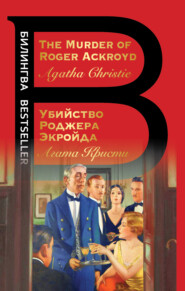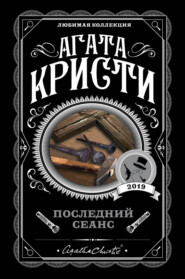По всем вопросам обращайтесь на: info@litportal.ru
(©) 2003-2024.
✖
Hallowe’en Party
Автор
Год написания книги
2019
Настройки чтения
Размер шрифта
Высота строк
Поля
‘Naturally,’ said Mrs Oliver, ‘what else would you expect? Is he deafer or blinder or fatter or thinner?’
Poirot considered.
‘He has lost a little weight. He wears spectacles for reading the paper. I do not think he is deaf, not to any noticeable extent.’
‘And what does he think about it all?’
‘You go too quickly,’ said Poirot.
‘And what exactly are you and he going to do?’
‘I have planned my programme,’ said Poirot. ‘First I have seen and consulted with my old friend. I asked him to get me, perhaps, some information that would not be easy to get otherwise.’
‘You mean the police here will be his buddies and he’ll get a lot of inside stuff from them?’
‘Well, I should not put it exactly like that, but yes, those are the lines along which I have been thinking.’
‘And after that?’
‘I come to meet you here, Madame. I have to see just where this thing happened.’
Mrs Oliver turned her head and looked up at the house.
‘It doesn’t look the sort of house there’d be a murder in, does it?’ she said.
Poirot thought again: What an unerring instinct she has!
‘No,’ he said, ‘it does not look at all that sort of a house. After I have seen where, then I go with you to see the mother of the dead child. I hear what she can tell me. This afternoon my friend Spence is making an appointment for me to talk with the local inspector at a suitable hour. I should also like a talk with the doctor here. And possibly the head-mistress at the school. At six o’clock I drink tea and eat sausages with my friend Spence and his sister again in their house and we discuss.’
‘What more do you think he’ll be able to tell you?’
‘I want to meet his sister. She has lived here longer than he has. He came here to join her when her husband died. She will know, perhaps, the people here fairly well.’
‘Do you know what you sound like?’ said Mrs Oliver. ‘A computer. You know. You’re programming yourself. That’s what they call it, isn’t it? I mean you’re feeding all these things into yourself all day and then you’re going to see what comes out.’
‘It is certainly an idea you have there,’ said Poirot, with some interest. ‘Yes, yes, I play the part of the computer. One feeds in the information—’
‘And supposing you come up with all the wrong answers?’ said Mrs Oliver.
‘That would be impossible,’ said Hercule Poirot. ‘Computers do not do that sort of a thing.’
‘They’re not supposed to,’ said Mrs Oliver, ‘but you’d be surprised at the things that happen sometimes. My last electric light bill, for instance. I know there’s a proverb which says “To err is human,” but a human error is nothing to what a computer can do if it tries. Come on in and meet Mrs Drake.’
Mrs Drake was certainly something, Poirot thought. She was a tall, handsome woman of forty-odd, her golden hair was lightly tinged with grey, her eyes were brilliantly blue, she oozed competence from the fingertips downwards. Any party she had arranged would have been a successful one. In the drawing-room a tray of morning coffee with two sugared biscuits was awaiting them.
Apple Trees, he saw, was a most admirably kept house. It was well furnished, it had carpets of excellent quality, everything was scrupulously polished and cleaned, and the fact that it had hardly any outstanding object of interest in it was not readily noticeable. One would not have expected it. The colours of the curtains and the covers were pleasant but conventional. It could have been let furnished at any moment for a high rent to a desirable tenant, without having to put away any treasures or make any alterations to the arrangement of the furniture.
Mrs Drake greeted Mrs Oliver and Poirot and concealed almost entirely what Poirot could not help suspecting was a feeling of vigorously suppressed annoyance at the position in which she found herself as the hostess at a social occasion at which something as anti-social as murder had occurred. As a prominent member of the community of Woodleigh Common, he suspected that she felt an unhappy sense of having herself in some way proved inadequate. What had occurred should not have occurred. To someone else in someone else’s house—yes. But at a party for children, arranged by her, given by her, organized by her, nothing like this ought to have happened. Somehow or other she ought to have seen to it that it did not happen. And Poirot also had a suspicion that she was seeking round irritably in the back of her mind for a reason. Not so much a reason for murder having taken place, but to find out and pin down some inadequacy on the part of someone who had been helping her and who had by some mismanagement or some lack of perception failed to realize that something like this could happen.
‘Monsieur Poirot,’ said Mrs Drake, in her fine speaking voice, which Poirot thought would come over excellently in a small lecture room or the village hall,
‘I am so pleased you could come down here. Mrs Oliver has been telling me how invaluable your help will be to us in this terrible crisis.’
‘Rest assured, Madame, I shall do what I can, but as you no doubt realize from your experience of life, it is going to be a difficult business.’
‘Difficult?’ said Mrs Drake. ‘Of course it’s going to be difficult. It seems incredible, absolutely incredible, that such an awful thing should have happened. I suppose,’ she added, ‘the police may know something? Inspector Raglan has a very good reputation locally, I believe. Whether or not they ought to call Scotland Yard in, I don’t know. The idea seems to be that this poor child’s death must have had a local significance. I needn’t tell you, Monsieur Poirot—after all, you read the papers as much as I do—that there have been very many sad fatalities with children all over the countryside. They seem to be getting more and more frequent. Mental instability seems to be on the increase, though I must say that mothers and families generally are not looking after their children properly, as they used to do. Children are sent home from school alone, on dark evenings, go alone on dark early mornings. And children, however much you warn them, are unfortunately very foolish when it comes to being offered a lift in a smart-looking car. They believe what they’re told. I suppose one cannot help that.’
‘But what happened here, Madame, was of an entirely different nature.’
‘Oh, I know—I know. That is why I used the term incredible. I still cannot quite believe it,’ said Mrs Drake. ‘Everything was entirely under control. All the arrangements were made. Everything was going perfectly, all according to plan. It just seems—seems incredible. Personally I consider myself that there must be what I call an outside significance to this. Someone walked into the house—not a difficult thing to do under the circumstances—someone of highly disturbed mentality, I suppose, the kind of people who are let out of mental homes simply because there is no room for them there, as far as I can see. Nowadays, room has to be made for fresh patients all the time. Anyone peeping in through a window could see a children’s party was going on, and this poor wretch—if one can really feel pity for these people, which I really must say I find it very hard to do myself sometimes—enticed this child away somehow and killed her. You can’t think such a thing could happen, but it did happen.’
‘Perhaps you would show me where—’
‘Of course. No more coffee?’
‘I thank you, no.’
Mrs Drake got up. ‘The police seem to think it took place while the Snapdragon was going on. That was taking place in the dining-room.’
She walked across the hall, opened the door and, rather in the manner of someone doing the honours of a stately home to a party of charabanc goers, indicated the large dining-table and the heavy velvet curtains.
‘It was dark here, of course, except for the blazing dish. And now—’
She led them across the hall and opened the door of a small room with arm-chairs, sporting prints and bookshelves.
‘The library,’ said Mrs Drake, and shivered a little. ‘The bucket was here. On a plastic sheet, of course—’
Mrs Oliver had not accompanied them into the room. She was standing outside in the hall—
‘I can’t come in,’ she said to Poirot. ‘It makes me think of it too much.’
‘There’s nothing to see now,’ said Mrs Drake. ‘I mean, I’m just showing you where, as you asked.’
‘I suppose,’ said Poirot, ‘there was water—a good deal of water.’
‘There was water in the bucket, of course,’ said Mrs Drake.
She looked at Poirot as though she thought that he was not quite all there.
‘And there was water on the sheet. I mean, if the child’s head was pushed under water, there would be a lot of water splashed about.’
‘Oh yes. Even while the bobbing was going on, the bucket had to be filled up once or twice.’
‘So the person who did it? That person also would have got wet, one would think.’
‘Yes, yes, I suppose so.’
‘That was not specially noticed?’

















